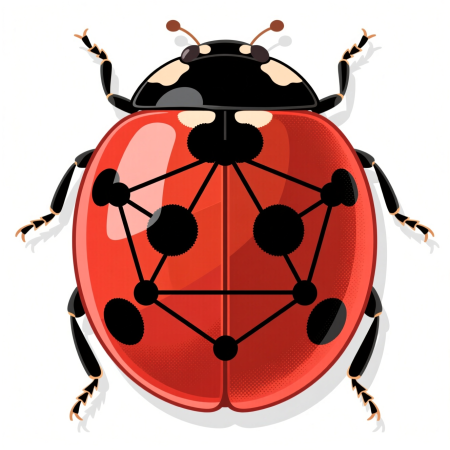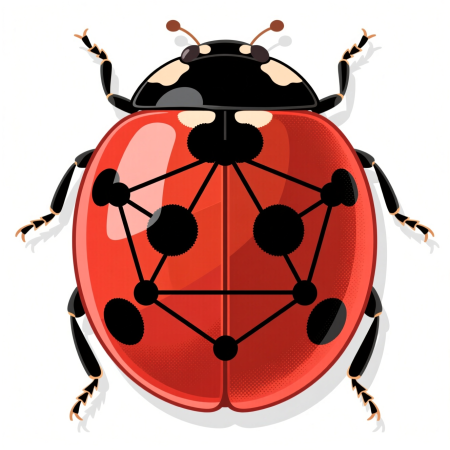Extensions
Ladybug has an extension API that is designed to dynamically extend its capabilities. Extensions allow you to dynamically load the functionality you need at runtime, while helping limit the size of the core Ladybug library.
Available extensions
The following extensions are currently implemented:
| Extension | Description |
|---|---|
| algo | Graph algorithms |
| azure | Scan from Azure Blob Storage and Azure Data Lake Storage (ADLS) |
| delta | Scan data from Delta Lake tables |
| duckdb | Scan data from an attached DuckDB database |
| fts | Perform full-text search using BM25 |
| httpfs | Read and write files over HTTP(S) protocol. Also used for attaching a remote Ladybug database. |
| iceberg | Scan data from Iceberg tables |
| json | Scan and manipulate JSON data |
| llm | Generate text embeddings using external provider APIs |
| neo4j | Migrate data from Neo4j into Ladybug |
| postgres | Scan data from an attached PostgreSQL database |
| sqlite | Scan data from an attached SQLite database |
| unity | Scan data from Unity Catalog tables |
| vector | Perform vector similarity search |
Using extensions in Ladybug
This section describes how to use officially supported extensions in Ladybug.
List available extensions
You can list all available official extensions by running:
CALL SHOW_OFFICIAL_EXTENSIONS() RETURN *;Install an extension
Ladybug requires you to install the extension before loading and using it.
Official extensions can be installed from a local extension server by running the INSTALL command.
INSTALL <EXTENSION_NAME> FROM 'http://localhost:8080/';You only need to install an extension once.
Update an extension
If you run the INSTALL command for an extension that is already installed,
the second install command will not perform any action.
If you want to re-download an extension for any reason, for example if the extension is not working
properly, you can use the UPDATE command:
UPDATE <EXTENSION_NAME>;Load an extension
You must load extensions before you can use them:
LOAD <EXTENSION_NAME>;Official extensions can be loaded by simply specifying the extension name.
For example, to load the json extension:
load json;If you want to load an extension you have compiled yourself, you can specify the path to the compiled library.
For example, to load a self-compiled json extension:
LOAD EXTENSION 'extension/custom_json/build/libjson.lbug_extension';List loaded extensions
You can view all your loaded extensions by running:
CALL SHOW_LOADED_EXTENSIONS() RETURN *;Uninstall an extension
You can uninstall extensions if you don’t need them anymore by using the UNINSTALL command:
UNINSTALL <EXTENSION_NAME>;Host your own extension server
You can host your own extension server for Ladybug using Docker.
The extension server is based on NGINX and is hosted on GitHub. You can pull the Docker image and run it in your environment:
docker pull ghcr.io/ladybugdb/extension-repo:latestdocker run -d -p 8080:80 ghcr.io/ladybugdb/extension-repo:latestIn this example, the extension server will be available at http://localhost:8080. You can then install extensions from your server by appending the FROM clause to the INSTALL command:
INSTALL <EXTENSION_NAME> FROM 'http://localhost:8080/';
